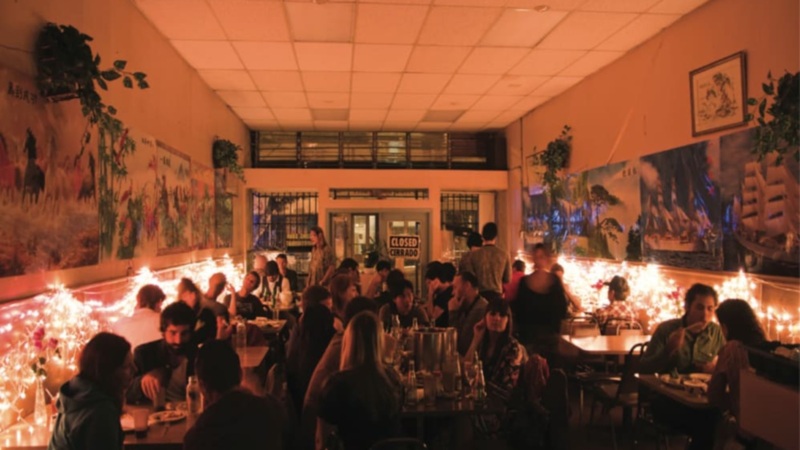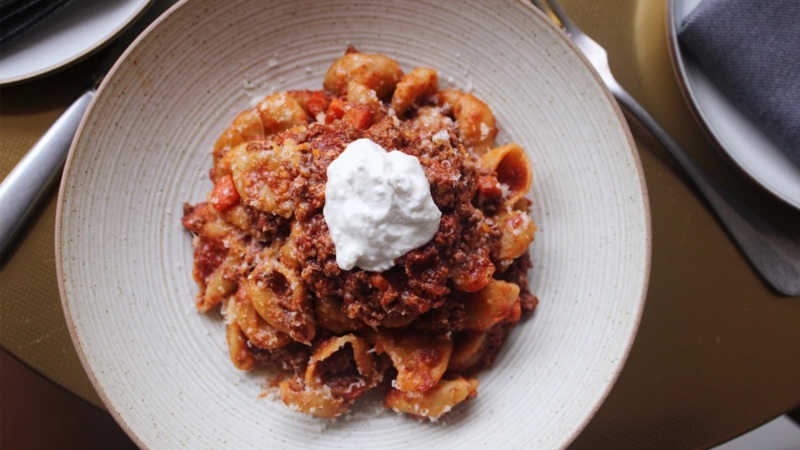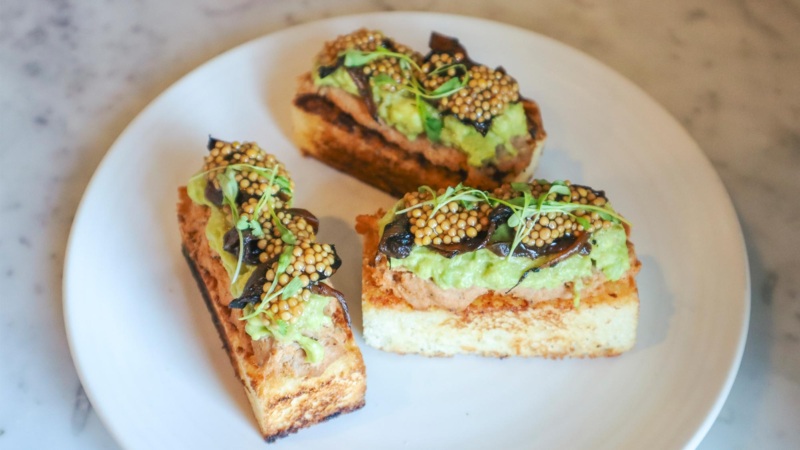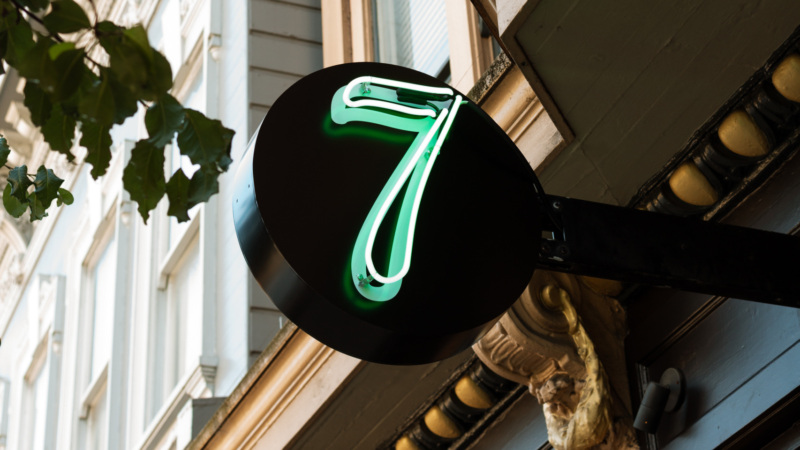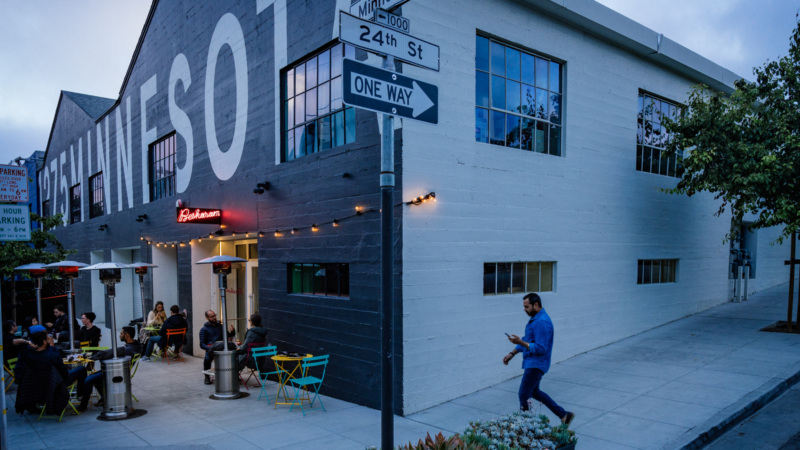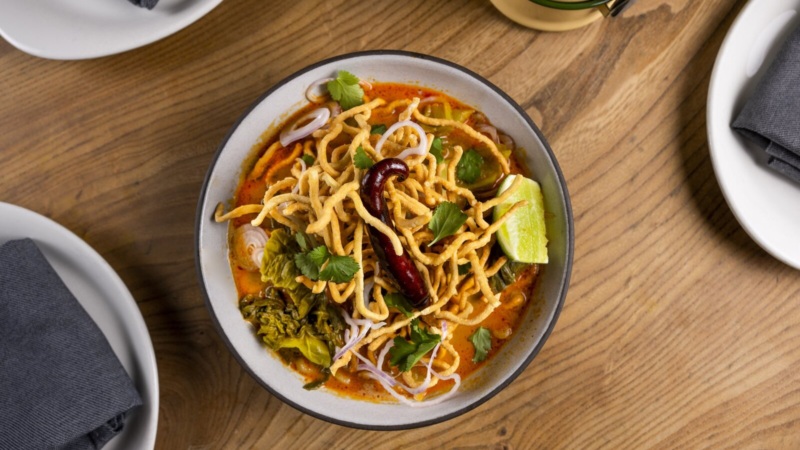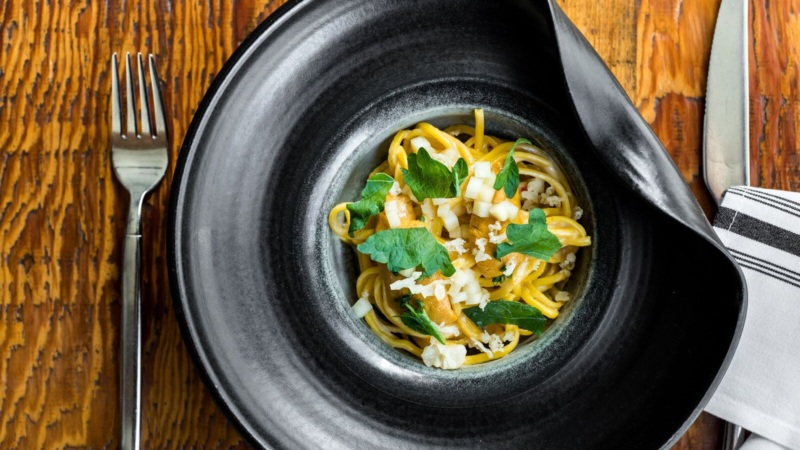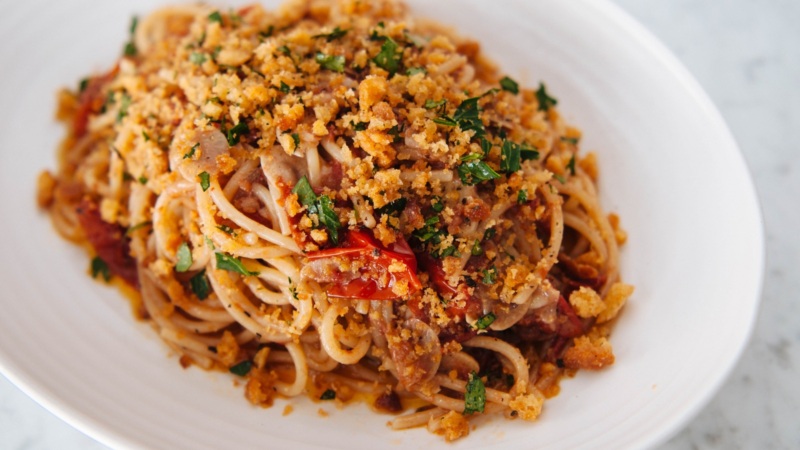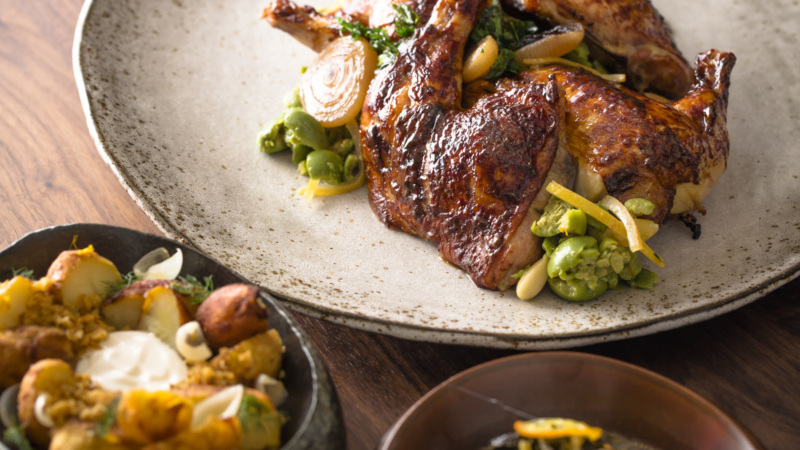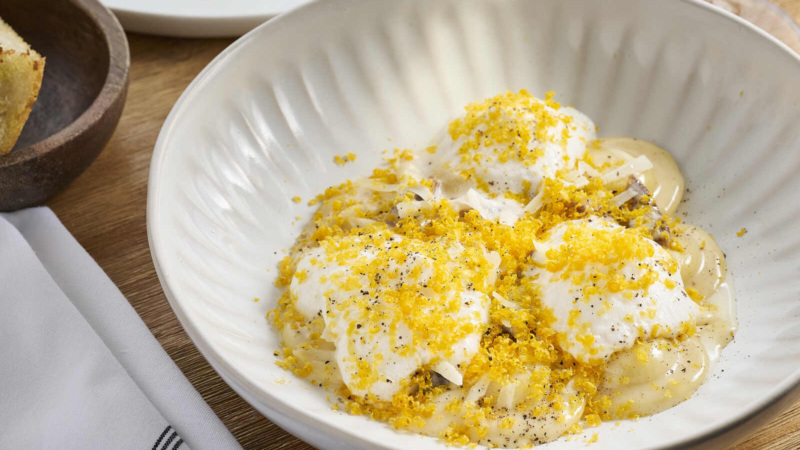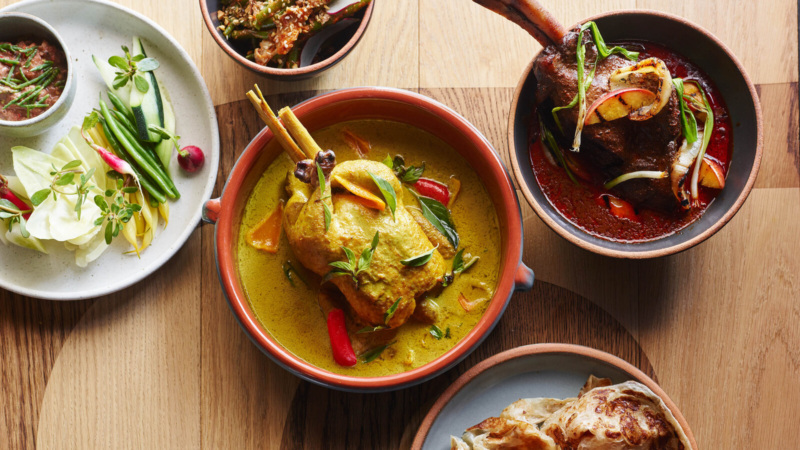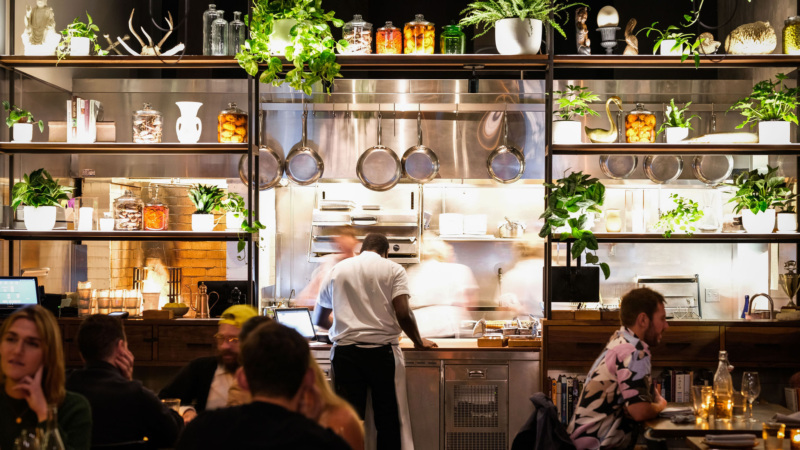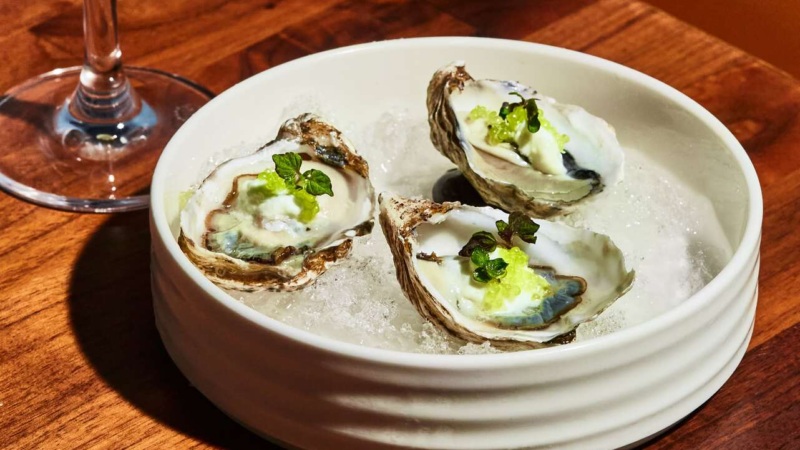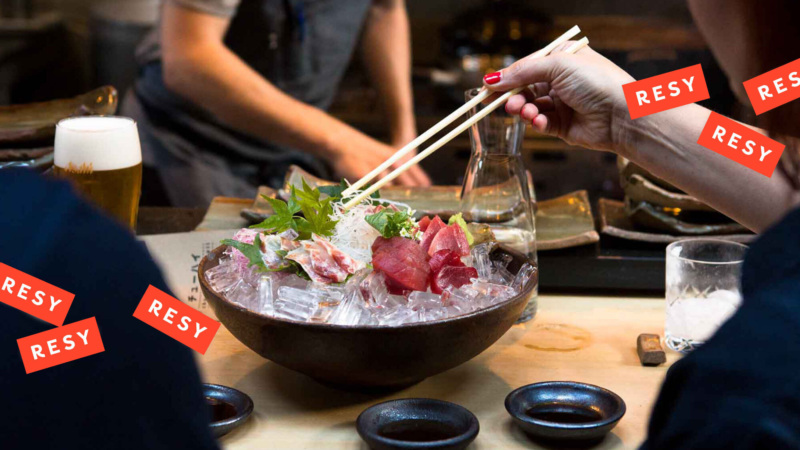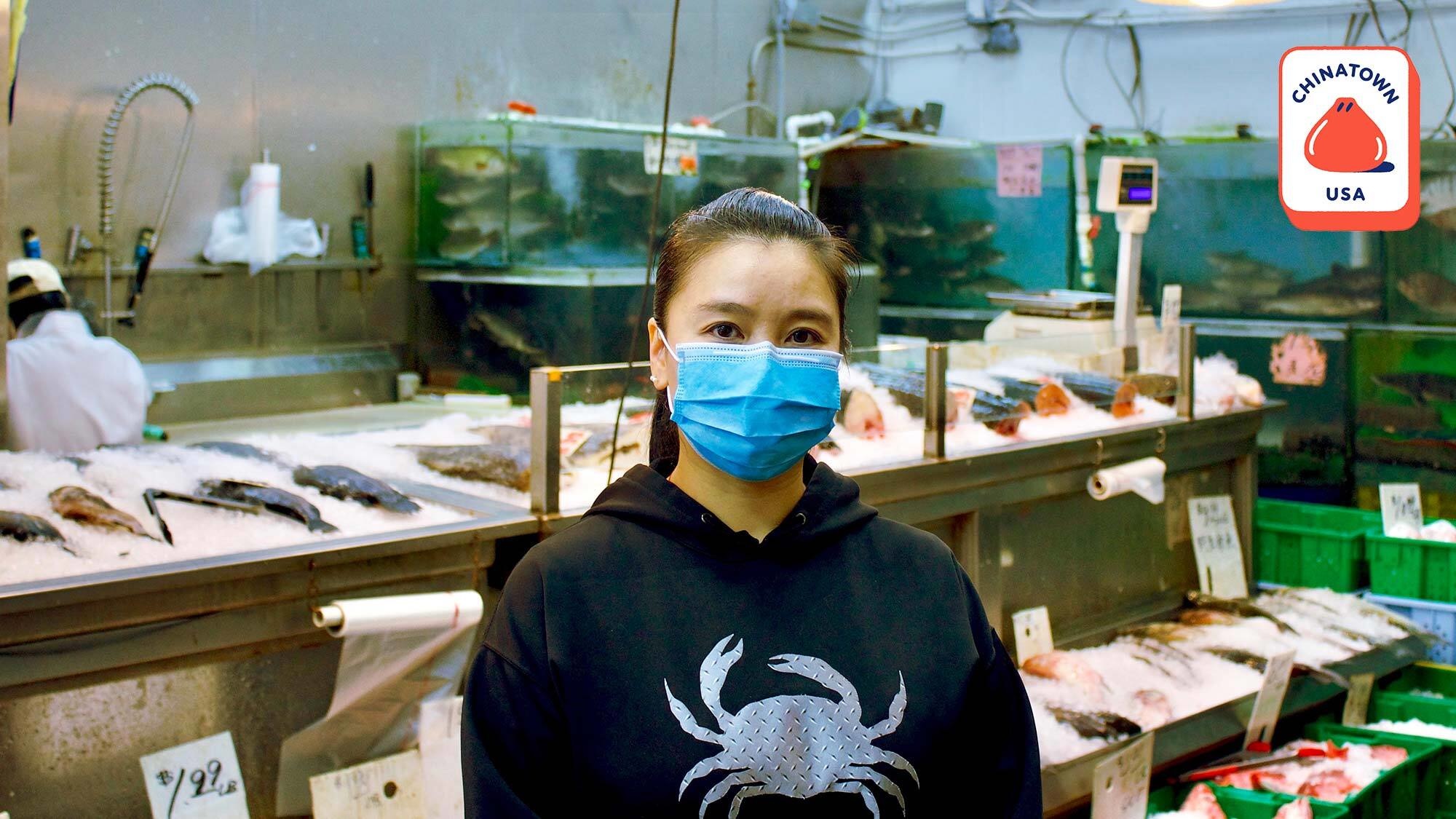
Chinatowns Everywhere Are Suffering. In Oakland, a New Generation Has Answers.
On any given trip to Green Fish Market in Oakland’s Chinatown, you might find Finnie Phung surrounded by tanks of fish, geoduck clams, and Dungeness crab, dressed in knee-high rain boots, rubber gloves, a face mask, and answering questions in Cantonese or English. To the casual shopper, the smell of the sea in the city’s busiest fish market might be penetrating. Not to Phung. “I have been working in this environment since I was a teenager,” she says proudly.
A daughter of refugees from Vietnam, Phung runs this seafood market in the heart of Oakland Chinatown with her husband, while raising three children in the middle of a pandemic, and somehow maintaining a chipper outlook. She epitomizes the younger generation of Chinatown’s shopkeepers: social-media savvy, bilingual or trilingual, with a uniquely Asian American outlook.
While San Francisco’s Chinatown is a well-known tourist destination, the century-old Oakland Chinatown is far less so. As with the Chinese American commercial strips of Philadelphia and Houston, most of the neighborhood businesses serve the community. As a first-generation immigrant from Taiwan, Oakland Chinatown feels like home to me, the best of living in the United States while still being able to get chicken feet, mangosteen, and star fruit, surrounded by familiar languages, only one of which is English.
Those close ties may be why Oakland Chinatown, while significantly affected by the pandemic, may be able to weather the economic crisis better than Chinatowns in other cities. In fact, multi-generational businesses like Finnie’s market, passed down from parents or grandparents, say that immediate post-pandemic sales are at least as strong as before. Chinatown’s support of the Black Lives Matter protests that flowed through Oakland in May also show how intertwined the neighborhood feels with the broader city.
If Oakland Chinatown can recover from this year, it will be because of people like Finnie Phung.
▪️
Roughly six by seven city blocks wide, located near downtown, the neighborhood has many residents, restaurants, grocery stores, jewelry shops, a health clinic, and more. “To be able to walk to your neighborhood grocery store, it’s huge for the elders,” says Sabrina Quan, fourth-generation owner of Yuen Hop, one of the neighborhood’s oldest markets. “We have generations of loyal customers.” Sabrina’s great-grandfather, who emigrated from the Toisan region of Guandong province, started the business in 1931 to sell freshly-made egg noodles, tofu, and bean sprouts. Sabrina and her brother, Anthony, still sell 10 varieties of their famous egg noodles using their great-grandfather’s original recipes — but also a wide variety of produce.
“[These types of businesses are], right now and more than ever, the most important bridge between the past and the future,” says Tommy Wong, co-founder of GoodGoodEatz with Oakland native Trinh Banh, a new effort that started in April to help Oakland Chinatown businesses adapt to 21st-century strategies and marketing. GoodGoodEatz is an organization run by younger generation Asian Americans and people of color who are trying to help food businesses adapt so they can thrive. It has now expanded across Oakland, a model for ways ethnic districts can support each other.
During COVID-19, with the encouragement of GoodGoodEatz, Yuen Hop set up an Instagram account for the first time and started a CSA box, containing their freshly-made noodles and Asian produce and fruits. Although many farmers that contribute to traditional CSA boxes are Latinx or Asian American, they may seem in the vein of Chez Panisse customers. The clientele for Yuen Hop’s, Anthony Quan says, was a “more millennial Asian American, tech-savvy crowd.”
“It showed that people needed a CSA option that wasn’t Western and mainstream,” Wong of GoodGoodEatz said. “Our job is to give businesses like Anthony’s diversified business strategies so they can be more nimble.”
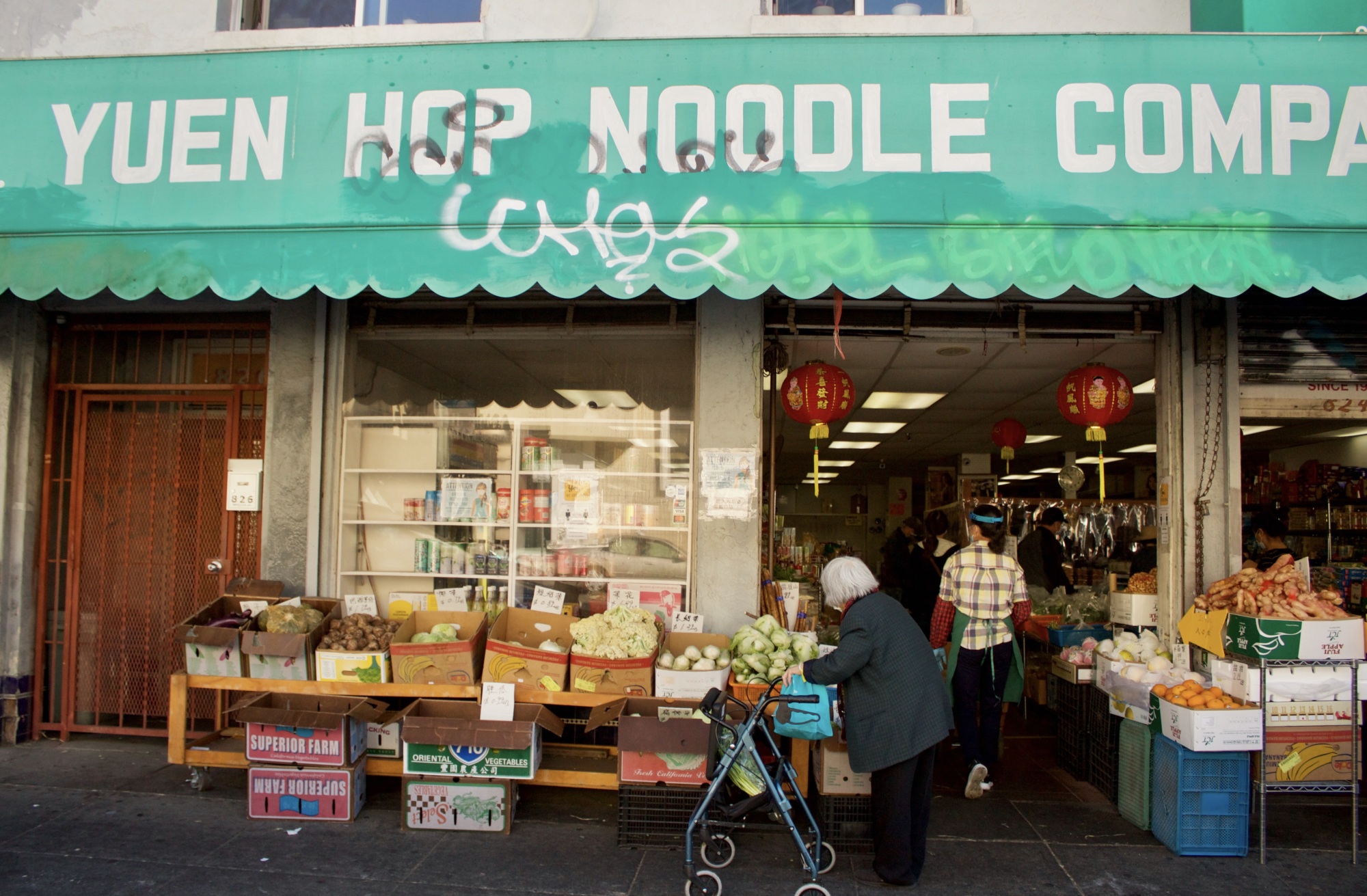
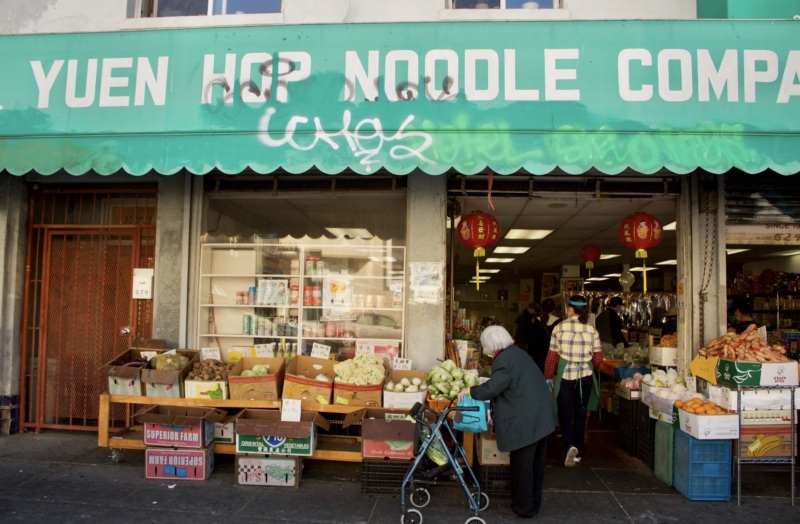
With a little questioning, the connections emerge between the neighborhood’s businesses. Finnie Phung’s father, John Phung, was known as the “Fruit King,” and started his retail career in Oakland in 1995 with a food stall in the alleyway next to Yuen Hop, not long after he and his family, who are ethnically Chinese, immigrated from Vietnam.
As a middle schooler, Finnie helped out at their alleyway stand, selling ripe bananas and mangos off of makeshift cardboard displays after school and before Chinese class. Finnie worked in the family businesses as John graduated up to a Chinese fast-food restaurant, then an ornate dim sum restaurant and banquet hall named Legendary Palace, where Finnie was the banquet manager. Her father also opened Green Fish Seafood Market in 2008, selling the market to Finnie and her husband, Eric Huynh, in 2011.
Similar to Yuen Hop and Green Fish, Oakland Chinatown’s busiest restaurant, Shan Dong, has seen business actually increase during the pandemic. Charles Hung, who runsShan Dong, with his family — wife Tiffany Yu, mother Helen, and brother-in-law Chi Hung Li, the head chef — their business has become successful in part by focusing on English-speaking customers. Shan Dong purposely doesn’t advertise in Chinese-language media or use Chinese food delivery apps; instead, it’s been available through DoorDash, GrubHub, and Caviar.
Before the pandemic, Shan Dong had lines out the door almost every evening. Now that indoor dining has been closed, their takeout orders have increased — with more volume of sales than before the pandemic, Hung said, although the third-party apps take a big chunk of income.
For Hung, though, running a Chinese restaurant in Chinatown wasn’t something he imagined.
Energetic and funny, Hung left college 30 years ago to help out his parents combat slow sales and significant debt when the restaurant first opened. Making Shan Dong a success has occupied much of his life, and he doesn’t regret it. But he never asked his children, who are both in college, to help out. “In my mind, I always tell myself that the restaurant business stops at me,” he says.
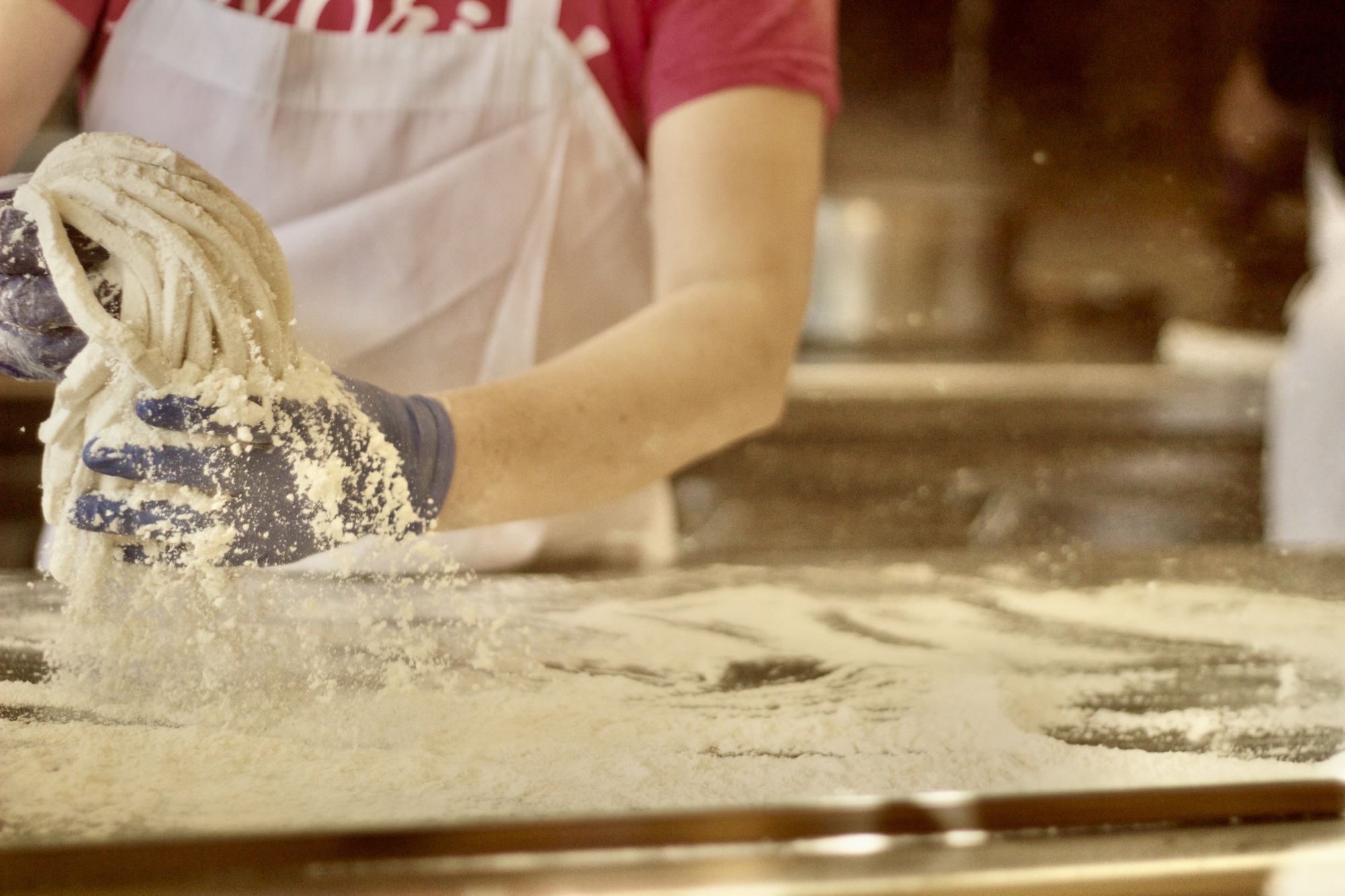
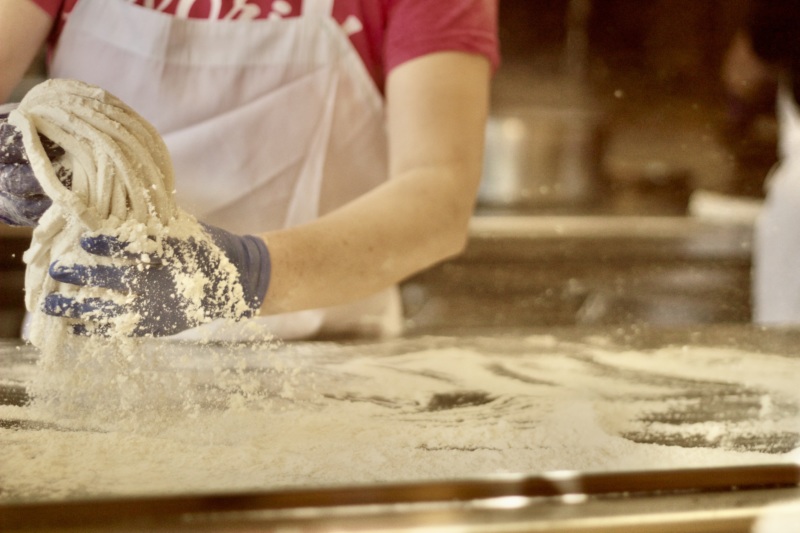
And sure enough, to be an entrepreneur means sacrificing a lot of time for your business. As the daughter of immigrants from Taiwan, and an immigrant myself, I see myself in many of these second-generation entrepreneurs. To come to the United States, start from scratch, and build something that benefits the community — it’s something to take pride in. But there’s also a price to pay for this hard work, and success. It means less time spent with children, and much more time working.
So when I hear that Shan Dong might not be passed down to the next generation, I’m both sad and heartened. Hung’s children are now in college, the age he was when he dropped out to help out his family.
▪️
While there are success stories and resilience among Chinatown businesses, the fact is that Chinatowns across the country have dealt with increasing anti-Asian sentiments, fears of COVID-19, and lack of tourism, devastating many of these century-old neighborhoods that hold historic and cultural value. And this includes Oakland’s Chinatown, where approximately 40 percent of businesses in August 2020, including restaurants, were still closed, according to Carl Chan, board president of the Oakland Chinatown Chamber of Commerce.
But in Oakland, this is also a community that has formed a bond to others.
In late May, protests against the killing of George Floyd and for Black Lives Matter made their way through Chinatown, and a few nights of vandalism left 30 storefronts in the neighborhood with broken windows and some damage. GoodGoodEatz put out a call for volunteers to help clean up, and 400 people showed up. The event inspired an awareness campaign calling for Asian and Black unity.
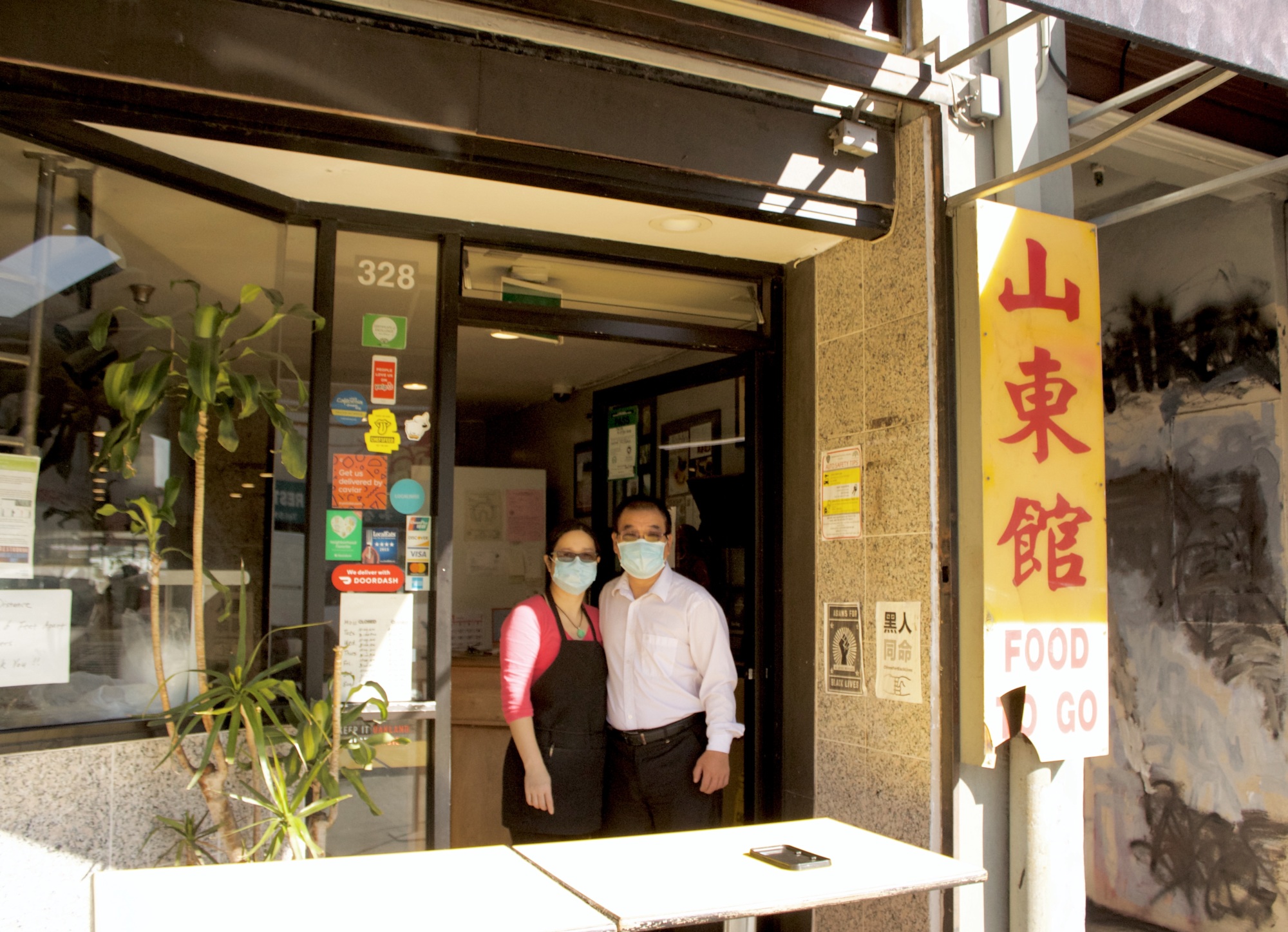
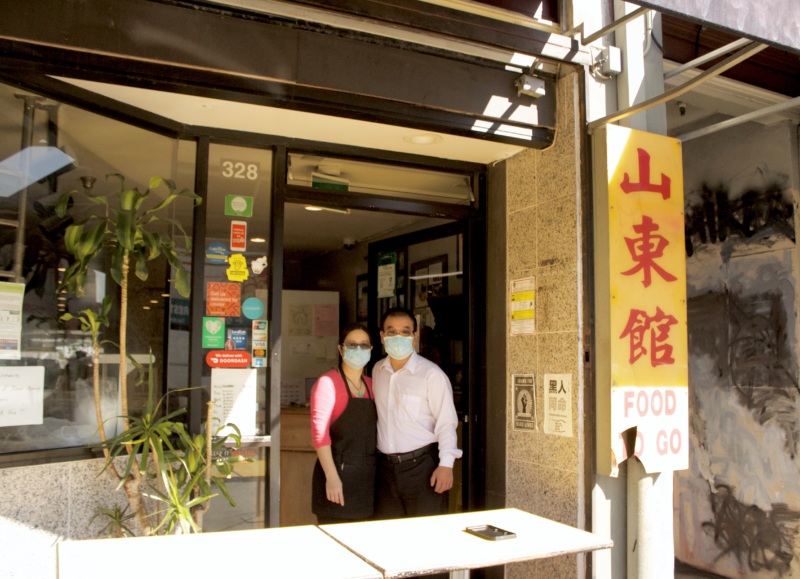
The protests inspired Asian American business owners to build stronger bridges to Oakland’s Black community. While partly still boarded up, the neighborhood is now covered with beautiful murals in support of Black Lives Matter. Alicia Wong, third-generation owner of the Oakland Fortune Cookie Factory, began making solidarity fortune cookies filled with quotes from Black leaders; she is donating half the proceeds to NAACP and the Innocence Project.
During the summer, GoodGoodEatz partnered with Ayesha and Stephen Curry’s Eat.Learn.Play initiative and Jose Andres’s World Central Kitchen, and helped distribute 20,000 meals cooked by 20 Chinatown restaurants in a five-week span. In total, it brought $200,000 to over 17 Chinatown restaurants, and also spawned food distribution sites in and around Chinatown. The effort continues, and has brought now more than $1 million to Chinatown and neighboring restaurants in the past few months.
In August, a new initiative started by the Chinatown Chamber of Commerce closed off a few blocks for outdoor dining in order to support local restaurants. Now, in the Fall of 2020, almost all of the restaurants have re-opened for takeout, though a few seem to have permanently closed, including a buffet. A handful of other restaurants also closed due to a fire.
For Finnie Phung, keeping traditions is still important to her personally. Phung excitedly tells me about herbal soups made from pork liver and kidney, and laments that the younger generation don’t cook these traditional dishes. “We’re losing our culture, who we are. I’m so happy that people still buy this stuff. I tell my girlfriends, you have to eat more Chinese greens, more herbal soup, and fish.”
At the same time, she is an Oaklander, through and through, an Asian American with a sense of racial justice. When the Black Lives Matter protests flowed through Chinatown, she ran outside to stand in the doorway of her fish market — with her fist up.
Momo Chang is a freelance writer focused on stories about food, health and immigrant communities, for such publications as Wired, The San Francisco Chronicle, and Berkeleyside NOSH; and the alumni coordinator for Oakland Voices, a community journalism training program. Follow her on Twitter. Follow Resy, too.

